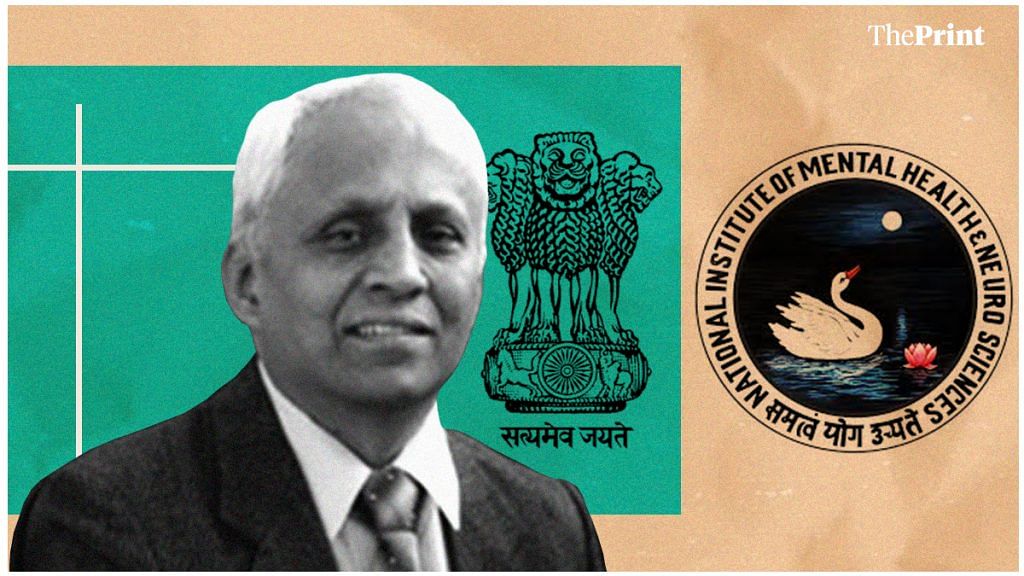New Delhi: Do I have Covid-19? Will my family members or I catch the infection? Is there any treatment available or a vaccine coming anytime soon? These are some of the main concerns expressed by callers to the 24×7 helpline that has been set up by the National Institute of Mental Health and Neuro Sciences (NIMHANS) in Bengaluru.
The institute has received over 3.5 lakh calls since the lockdown in March, mostly by people who have had no history of clinical mental illness.
“More and more people, which have no history of clinical mental illness, are reaching out to us…Impact on mental health is a foremost concern emerging due to the outbreak. We have done 75,000 counselling sessions for queries related to fear of catching Covid-19 or other concerns,” B.N. Gangadhar, director and vice-chancellor of NIMHANS, told ThePrint.
Gangadhar said “callers wanted to know if they have Covid-19 and feared for their family members”.
“Questions about availability of treatment and anticipation of the arrival of vaccines are also common. People who are living away from their family members have also expressed anxieties related to the well being of their loved ones,” he added.
The NIMHANS’ helpline (080-4611 0007) was set-up on 25 March, the same day when Prime Minister Narendra Modi ordered a nationwide lockdown for 21 days to curb the spread of the novel coronavirus.
Later, various mental health institutes, such as The Indian Psychiatric Society, merged their helpline numbers with the one set up by NIMHANS.
“The idea behind launching the helpline was to help people staying indoors, who were unable to travel due to the lockdown or worried about their relatives in quarantine. These are times when people may not choose to visit a hospital to see a psychiatrist. Calling a helpline is an easier option,” Gangadhar said, adding that the facility’s helpline is a toll-free number and available across states in different regional languages.
Also read: Delhi’s RML Hospital short of 108 doctors, 328 nurses as it fights Covid fear & fatigue
Concerns related to job loss, postponement of exams
While the full call data is yet to be analysed, Gangadhar said, some of the frequently-asked non-Covid queries dealt with fear of losing jobs, managing stress related to work and postponement of exams, anxiety regarding children’s education as well as concerns about migration of workers.
About 400 mental health professionals attend to these calls across India.
“A third of the callers who expressed concerns about their mental health asked questions about Covid-19. We have a team to handle psychological distress and they try to take care of the fears, anxiety and depression expressed by callers,” Gangadhar said.
He also added that the helpline shares “publicly available information” for medical queries on Covid-19. NIMHANS has been training thousands of doctors, nurses, counsellors and other healthcare professionals to provide psychosocial support during the pandemic.
Mental health services
On 6 July, Health Secretary Preeti Sudan had written to the states and union territories asking them to create an enabling environment where mental health issues such as depression and anxiety can be openly discussed.
In her letter, Sudan had listed out steps taken by the ministry to deal with mental health concerns during the pandemic.
It included the 24×7 helpline in NIMHANS to provide psychosocial support by mental health professionals for different target groups (children, adult, women and elderly), a separate helpline for healthcare workers, advocacy on mental health issues and a guidance document.
The letter read: “The common signs and symptoms of the depression and anxiety need to be discussed openly so that anybody who starts facing the problem is able to identify, accept and seek help. Lack of knowledge and ignorance is what aggravates the problem.”
Also read: Harsh Vardhan shares blog on depression posted by AIIMS doctor who committed suicide
